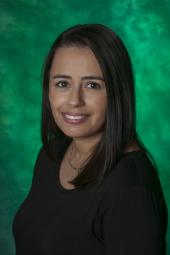The Department of Educational Psychology offers an Educational Diagnostician Certification for candidates who already hold a master’s degree. This certification program prepares professional educators to practice as assessment personnel in education. It prepares candidates to advocate for and assess students’ academic, cognitive, social, emotional, and behavioral needs. They learn to collaborate with teachers to recommend data-based accommodations, modifications, and interventions. This is a certification program, not a Graduate Academic Certificate. Graduates are highly qualified and in high demand.
There are five start dates throughout the year. The start dates vary slightly by year, but they are around mid-January, mid-March, May, August, and mid-October. Our summer-to-summer option allows you to complete all degree requirements for the diagnostician program in 15 months. Students can also begin the program in the fall or spring, but due to course rotation, it will take closer to two years to complete all required coursework. Depending on the course, some are five-week, eight-week, or sixteen-week in length. Internship and practicum courses are the full term and require participation in Saturday seminars. Your coursework will prepare you for certification as an educational diagnostician.
Students in UNT’s Educational Diagnostician Program will need to work closely with respective TEA approved districts and secure placements to complete a minimum of 160 clock hours. Securing field mentors who are certified educational diagnosticians is your responsibility. Some districts require applications for practicums a year in advance and grant limited practicum placements. Students will need to plan with placements to access test kits including Woodcock-Johnson Achievement, Woodcock-Johnson Cognitive, Weschler Intelligence Scale for Children, Weschler Individual Achievement Test, Kauffman Assessment Battery for Children, and Kauffman Test of Educational Achievement. A certified educational diagnostician must supervise the administration of these instruments. The University of North Texas cannot be responsible for site placements or the securing of testing kits or field mentors.
To obtain a recommendation to the Texas Education Agency (TEA) for certification through University of North Texas, individuals must have an earned master’s degree, three years of creditable teaching experience in K-12 settings, a valid Texas teaching certificate, completion of a program, and deficiency plan on file. As certification requirements may change without notice, it is the responsibility of the student to confirm the requirements for certification. Individuals who are located out of state should contact the state of residency education agency for specific assessment personnel requirements.
Admission Requirements
The Academic Certification in Educational Diagnosticians requires faculty to holistically review application materials to determine specific course sequence and can be up to 27 graduate level hours.
Individuals seeking the Professional Certification in the area of Educational Diagnostician must possess a Master's Degree and have satisfactorily met all the requirements of the UNT Educational Diagnostician program.
Students seeking recommendation for a professional certification at UNT must complete a minimum of 12 credit hours at UNT. This is a university requirement.
During your enrollment in EDSP 5540, you must file a deficiency plan with the Student Advising Office, Matthews Hall, Room 105. In preparation for obtaining the deficiency plan, you must meet with a faculty advisor who will complete an Educational Diagnostician Deficiency Plan. This worksheet along with copies of your teaching certificate, teaching service record, and official transcripts for all college/university credit completed will be required by the Student Advising Office.
Once the official deficiency plan is completed by the Student Advising Office, the student must provide a copy to the Special Education Office for his/her official student file.
Course Requirements for Certification
Applicant must meet course prerequisites, if any
- Special Education Common Core (9 hours)
- EDSP 5240 - Collaboration with Parents, Para-educators, and Professionals (3 hours)
- EDSP 5710 - Special Education Programs and Practices (3 hours)
- EDSP 5330 - Classroom and Behavior Management (3 hours)
- Educational Diagnostician Courses (minimum 18 hours)
- EDSP 5510 - Educational Appraisal of Exceptional Learners (3 hours)
- EDSP 5360 - Assessment of Autism (3 hours)
- EDSP 5530 - Individualized Diagnostic Assessment I: Practicum (3 hours)
- EDSP 5540 - Individualized Diagnostic Assessment II: Practicum (3 hours)
- EDSP 5560 - Assistive Technology (3 hours)
- EPSY 5210 - Educational Statistics (3 hours)
Each student must have a valid Texas teaching certificate in Special Education or a related area and three years of teaching experience as a fully licensed teacher.
Students who are accepted to the program must agree to abide by the attached Policy Manual.



